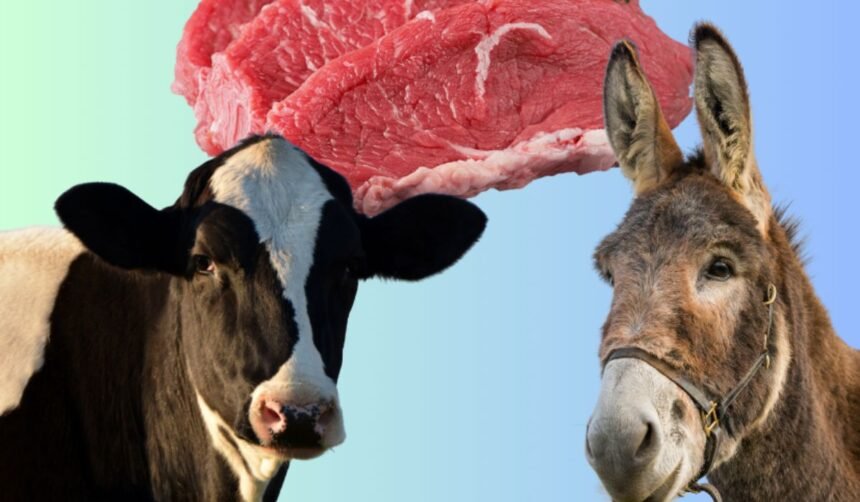A major food safety violation was uncovered near Islamabad after authorities discovered 1,000 kilograms of donkey meat at an illegal slaughterhouse in Tarnol. The Islamabad Food Authority (IFA) conducted the raid on July 27, recovering over 50 slaughtered donkeys.
The discovery has raised serious public health and ethical concerns. Although donkey meat is consumed in some parts of the world under regulation, its sale for human consumption is strictly prohibited in Pakistan.
According to officials, the illegal operation may have been linked to a broader trade network, potentially including foreign exports. The incident has left many residents questioning how to differentiate donkey meat from regular beef.
Veterinary expert Dr Muhammad Ali has offered guidance to help consumers detect such illegal meat. He stated that donkey meat is distinctly darker in color, often with a bluish tint, unlike the cherry-red hue of halal beef. Additionally, donkey meat produces a strong, off-putting odor when cooked.
Read More: Tasty But Risky: What to Know About Organ Meats
Dr Ali suggested that in cases of doubt, laboratory tests such as ELISA and PCR are reliable methods to confirm the meat’s origin. These tests detect species-specific proteins and DNA, making them useful tools for food safety agencies.
Beyond religious concerns—since donkey meat is considered haram in Islam—there are serious public health risks. Illegally slaughtered meat can carry harmful bacteria and diseases due to a lack of veterinary inspection.
Food safety officials are urging the public to buy meat only from verified butchers and avoid eateries offering unusually cheap beef meals. They also encourage people to demand transparency and push for more frequent inspections.


